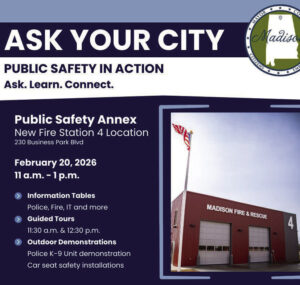Recommendations for donating to Hurricane Helene and Milton victims
MADISON – Within a two week period of time, two major hurricanes made landfall. The storms have affected millions of citizens across the United States.
Hurricane Helene swept across Florida, climbing farther inland, Thursday, Sept. 26. The storm caused death and damages across six states. Hurricane Milton made landfall Wednesday, Oct. 9, following a storm-related tornado outbreak. Milton swept across Florida into the Atlantic Ocean.
By Friday, Oct. 11, millions within the state of Florida still remained without power, according to poweroutage.us.
Search and rescue efforts related to both Helene and Milton continue across multiple states. Different organizations continue to send supplies, financial help, and volunteers, especially to North Carolina and Florida.
For anyone who feels compelled to give during this time, David Rauch, a spokesperson for the American Red Cross of Alabama and Mississippi, recommended three courses of action.
The first route of donation involves giving financially. People interested in donating to the American Red Cross specifically can do so by either texting “REDCROSS” to 90999 or visiting redcross. org/donate.
The second way to help those affected by Helene and Milton is by donating blood.
“Helene caused widespread devastation, so a lot of blood drives had to be canceled,” Rauch said. “Our hospital partners rely on a steady blood supply because people don’t stop having accidents. They don’t stop needing blood transfusions. They don’t stop getting cancer. All those things still happen, and they need that constant supply of blood on the shelves.”
The third action that Rouch recommends people take is volunteering their time. He said it’s critically important to have people trained before a storm hits. People often don’t think about there being a need for natural disaster volunteers until they happen, and Rauch stressed the importance of being proactive in training people ahead of time.
Following Helene, over 40 Red Cross volunteers from the Alabama-Mississippi chapter were deployed to help with damage assessment, feeding, sheltering, emotional support, and spiritual care.
“These are all things that are important that our volunteers do to help people feel some sense of normalcy because a lot of people have lost everything,” Rauch said.
In addition to training volunteers before disaster strikes, he encouraged those in the path of upcoming storms to put together emergency preparedness kits. The kits should include items such as nonperishable food, gallons of water, batteries, and an emergency radio. Rauch said people should consider items that they normally take for granted on any given normal day.
The most important preparedness measure that Rauch stressed, though, is paying attention to weather alerts from the local EMA and leaving the area when recommended.
“Your life and your family’s life are too important to gamble with so listen to emergency alerts,” Rauch said. “If you’re being asked to evacuate, please do. Don’t take a chance.”
In August, the National Oceanic and Atmospheric Administration predicted above normal storm activity for the 2024 hurricane season.
As hurricane season continues, people can find more information about hurricane preparedness on websites for the FEMA, National Hurricane Center, Small Business Administration, and the American Red Cross.

















